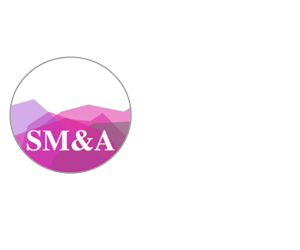The Summerland Museum and Archives offers a range of educational programs for schools. School programs have been designed to correlate with the current BC Curriculum Core Competencies and “Big Ideas” for the different grades.
KINDERGARTEN
Identity and Families
Big Ideas Focus
Our communities are diverse and made up of individuals who have a lot in common.
Stories and traditions about ourselves and our families reflect who we are and where we are from.
A short tour through the Museum to discover what a museum is all about and why we keep objects from the past. Students are encouraged to engage with the diverse stories and traditions of our community. 45-minute visit.
ELEMENTARY - MIDDLE SCHOOL
Grade 1/2 ‘Communities’
Big Ideas Focus -
We shape the local environment, and the local environment shapes who we are and how we live
Our rights, roles and responsibilities are important for building strong communities
Canada is made up of many diverse communities
Students learn about local Indigenous communities and their relationship with the environment. They then look at the arrival of white settlers and examine their relationship with the local environment, the impact of immigration on the environment and on existing communities. One-hour visit.
Grade 3/4 - Indigenous Peoples and First Contact
Big Ideas Focus -
Learning about Indigenous peoples nurtures multicultural awareness and respect for diversity.
Indigenous knowledge is passed down through oral history, traditions, and collective memory.
Indigenous societies throughout the world value the well-being of the self, the land, spirits, and ancestors.
Interactions between First Peoples and Europeans lead to conflict and cooperation, which continues to shape Canada’s identity
Students learn about the history of Summerland’s Indigenous community along with an in-depth look at their heritage, culture, and traditions. They consider the challenges of preserving oral history and the importance of telling a diverse and inclusive history of our town. One-hour visit.
Grade 5/6 - Migration and Multiculturalism
Big Ideas Focus
Immigration and multi-culturalism continue to shape Canadian society and identity
Canada’s policies for and treatment of minority peoples have negative and positive legacies
Systems of government vary in their respect for human rights and freedoms
Students learn about the different groups of immigrants who have shaped Summerland, and their impact on Indigenous groups and on the landscape. From the early European settlers to Japanese settlers and their treatment particularly in the 1920s and during the wars, Italian settlers and their contribution to Summerland, and more recent immigrants and refugees for example those from Syria. One-hour visit.
MIDDLE - HIGH SCHOOL
Indigenous Cultures, Exploration, and Contact: Indigenous Studies
Learn about Syilx traditional territory, culture, art, and ways of life as well as the Indigenous families that lived in what is now Summerland. There is also an introduction to the creation of reserves, residential schools, and how the arrival of settlers dramatically changed Indigenous life.
One hour visit.
Canada - From Colony to Country: A New Home in Canada
What was it like to travel to a new country not knowing what was in store? Discover what life was like for immigrants in British Columbia in the early years. Compare it to problems immigrants might face today.
One hour visit.
Okanagan Geology
Students learn about the formation of the Okanagan Valley and why Summerland is considered to be a geologic wonder.
One hour visit
Educational Presentations
Please give at least two weeks notice for bookings. Some programs involve securing museum volunteers to assist.
All supplies necessary for the visit will be available at the Museum unless otherwise discussed at the time of booking.
Due to the size of the museum, we can only accommodate up to 25 students.
At least one adult (teacher, Education Aid, or parent) for every ten students should accompany the children.
Please note: times listed for visits do not include travel time. No food or drink is allowed in the Museum.
Please feel free to call with any questions. If you have an idea for a different program we’d like to hear about it.

